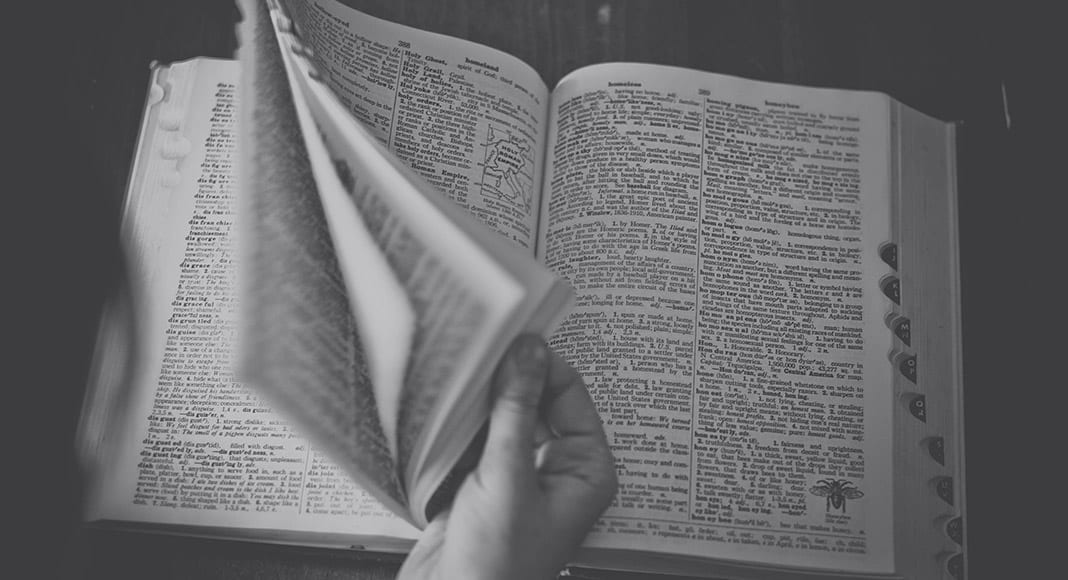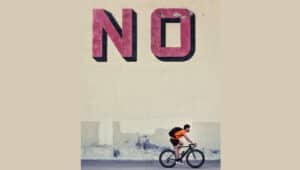When I was growing up in South London way back in the 1950s and 1960s, my school insisted that because I was studying English Language and English Literature for my ‘O’ levels, I would need a dictionary.
The book that then became part of my everyday life and, subsequently, my education was ‘The Oxford English Dictionary’.
However, as I look at the world around me now, with its various attitudes and the political correctness that abounds everywhere, I think that, without doubt, a new dictionary is needed. One that has removed a whole host of unnecessary words and phrases that no longer apply to the world we now live in.
When I was a kid, I was taught that if you were sitting on a train or a bus and a member of the female sex had to stand because there were no empty seats, then men should stand up and offer their seat to the lady.
If I was walking along a street with a female companion, it was my duty to walk on the outside of the pavement, thus protecting the lady from any dangers from passing traffic or simply to protect her from any splashes from puddles caused by passing cars. I was taught to always open doors for ladies and to help by carrying any heavy packages they may have.
There was a word for all these actions, and that very descriptive word was ‘Chivalry’.
However, we now live in a world where lots of people now strongly object if you dare to refer to them as being men and women, boys and girls, and certainly not male and female. Sadly, this means the word ‘Chivalry’ and the way of life and actions that great word describes will no longer be required in the new modern dictionary.
Along with ‘Chivalry’, we can also remove ‘Courtesy’ and ‘Respect’ from this new dictionary. I see little sign of either of them these days.
We can also remove the word ‘Gentleman’ from the new dictionary as well, as I am informed that using that word is apparently removing a person’s right to freedom of their sexuality by branding them with a descriptive term. Perhaps I’m just too old to understand this modern world, but too old or not, I don’t have to like it.
When I was a kid, there was no such thing as political correctness. You simply and ‘politely’ said exactly what you ‘honestly’ thought, and if in the process you accidentally upset someone else, then that was sad, but people always understood that everyone was entitled to their own opinion on anything and everything.
You didn’t deliberately set out to hurt another person’s feelings, but if you did, people understood, and you both moved on with your life. I’m afraid that in this modern world of political correctness, you can no longer say what you want about anything in case you unintentionally upset or offend someone else.
I was visiting Istanbul a few years ago and our guide, when walking around the giant mosque known as ‘Hagia Sophia’, proudly explained that originally built as a Christian church in the sixth century, it now proudly reflects the religious changes that have played out in the region over the centuries, with the inclusion of minarets and inscriptions of Islam as well as the lavish mosaics of Christianity.
She was really proud of the fact that the Turkish constitution includes religious freedom in its framework. Sadly, the same can no longer be said about the UK, which used to be described as a Christian country, but that has now gone as the UK is now ‘politically correct’.
For example, you try going into a shop in the UK during December to buy a box of Christmas cards showing a nativity scene on the front. It is virtually impossible because showing or even just mentioning Christ on a Christmas card might, we are told, offend people of other faiths.
Surely the clue is in the title, i.e., Christmas cards. What happened to freedom of faith and freedom of speech in the modern UK? I have to be honest and say that I much prefer the words to be found in the old-fashioned dictionary I was brought up with, where political correctness had never been heard of, and we were not only taught how to spell lots of words, but what they actually meant.
My school taught us another word which seems to play no part in our modern world. That word is ‘morals’. Sadly, I’m afraid it wouldn’t surprise me if some people these days may even ask ‘what are morals?’
The dictionary I referred to at the beginning of this article describes morals as ‘standards of behaviour incorporating the principles of right and wrong’. I try to respect and believe in these ‘old-fashioned morals’ and even if I don’t get it right all the time, at least I have been taught the difference between right and wrong.
As I look around me these days, I wonder if ‘morals’ is yet another word that should be removed from the modern dictionary.
My senior school from the age of eleven was Eltham Green School, in south London which alas no longer exists, but at the time, the school was divided into eight houses, with each house based on one of the initial letters of ELTHAM G. S. These eight houses were named: Endeavour, Loyalty, Truthfulness, Honesty, Ambition, Modesty, Generosity and Sincerity.
Not only were these the names of the houses, they were taught to be the aims and objectives of every pupil in the school. We were all taught about striving in life through Endeavour, being Loyal to your friends, your family and your employer. We were taught that we should always be Truthful and Honest in every aspect of our lives.
We were all taught to have Ambition in life but, at the same time, to always be Modest of our successes. Being Generous was taught as being the norm and to be expected, and whatever you ended up doing with your life, we were all taught to be Sincere in everything we did and said.
I have never forgotten the eight houses, and the eight-word school motto they formed, but I’m afraid that what I see in the modern world around me would seem to indicate that these eight words, along with the others I’ve mentioned would not make it into the new modern dictionary.
How sad!
By Trevor Holman
|| features@algarveresident.com
Trevor Holman has lived in the Algarve for 20 years. An ex-session musician, advertising director and Justice of the Peace, Trevor has written four stage musicals, over 100 songs and has had eight of his novels published to date, including the highly successful ‘Algarve Crime Thriller’ series.




















